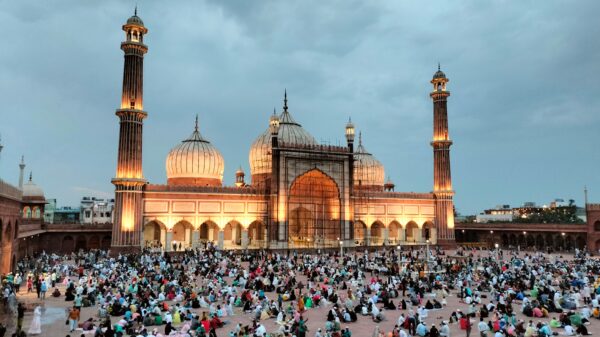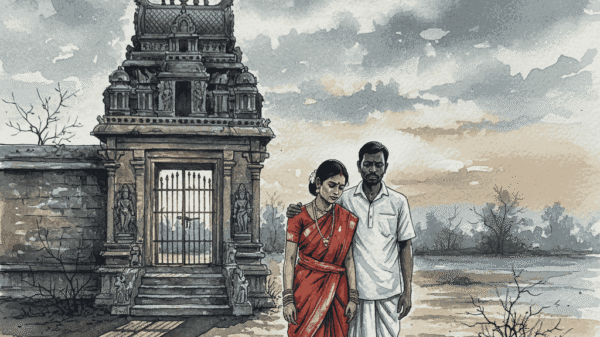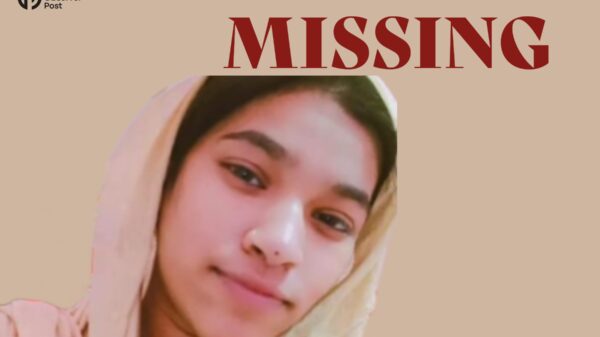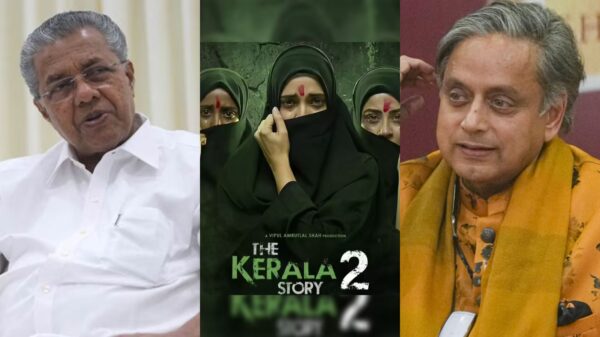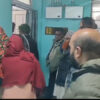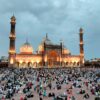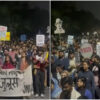Even after the G-20, poor people living in the slums of Delhi for decades are being targeted by bulldozer drives. Sunder Nursery slum in Nizamuddin, which sheltered more than 1500 poor people, mostly earning their livelihood by driving e-rickshaws, selling fruits and vegetables, and working as domestic helpers, and labourers, was demolished last week by the Central government-controlled Land and Development Office (L&DO) following a court order.
Sunder Nursery slum residents called their small houses Ashiyana “happy homes,” as they had to work hard for years to build them. However, the government’s bulldozers demolished their decades-old homes, turned them into heaps of rubble, and forced the residents to spend their cold nights and days on the road under the open sky.
Khalid Khan came to the Sunder Nursery slum in 1993, when he was only five years old, and has been living here for 30 years. Now, he is homeless.
“We received notices from L&DO on November 17th, stating that we had to vacate the homes by November 20th. At that time, we approached the Delhi High Court for help, where we did not get any relief but got the next hearing date,” 35-year-old Khan said.
Khan has a daughter studying in a Delhi government school, and two sons studying at Delhi Public School both got admission under the EWS quota. Khan said that he is very anxious about his children’s future.
“They should have given us some time before removing us from here. It is the month of November, it is winter, and the time is also coming for children’s school final exams. Now, where do we go?” Khan asked.
According to the 2011 census, approximately 47,000 of Delhi’s residents are homeless, but according to a 2014 survey by the Delhi Urban Shelter Improvement Board, Delhi has only 16,760 homeless residents. However, independent experts and activists suggest that New Delhi has between 1.5 lakh and 2 lakh homeless residents.
Shimla Devi, an elderly resident of the slum said, “This is the place where my mother-in-law, me, and my son got married, and I have grandchildren.”
“All communities are living here: Hindu-Muslim, Sikh, Christian, and now all are homeless. Where do these four brothers go? Is there a place for them? These four brothers also have an old mother; where would she go?” pointing to herself, Shimla Devi asked.
70-year-old Asiya has been forced to sit on the road with her scattered belongings as her 50-year-old home has turned into heap of rubble.
“The government was taking votes and providing facilities like water, electricity, and even installed street cameras, but despite this, our colony has not been saved by the government,” Asiya said.
Several homeless families have many questions, such as how their homes are illegal. They have decades-old governmental documents, such as identity card, residential address, electricity and water bills, ration cards, and government-issued house tokens. However, no leaders from the Central or Delhi governments are available to give answers to the questions of slum residents.
Durga Devi, 33, highlighted Prime Minister Narendra Modi’s promise, Jahan Jhuggi Wahan Makan—a house to take the place of a slum—and asked, “Where are the houses? We all became fooled by Kejriwal as well.”
Another resident, car driver Mohammad Chand’s home, was demolished without any rehabilitation, despite his home being listed on the Delhi Urban Shelter Improvement Board records among the 216 other slum families.
“My family and I have been living in the Sunder Nagar slum for 20 years, and many of my neighbors have been here even longer. People here dig wells every day and drink water every day; such people live here.” 30-year-old Chand said
The Delhi Urban Shelter Improvement Board Act 2010 had been passed in response to a judgment of the Delhi High Court, and the government of Delhi set up the Delhi Urban Shelter Improvement Board as the primary organisation for the rehabilitation and relocation of the slum residents in Delhi.
A DUSIB official told The Times of India that they haven’t denied rehabilitation to people who have their houses registered, and their lawyer argued in court that they did not get proper time to provide rehabilitation and they want more time to look into it.
Rita, a 30-year-old domestic worker, already carries entire responsibility for her two daughters, a son, and a handicapped husband, but her difficulties are now more extreme after her house was demolished.
Rita said, “I was happy with the little happiness of my children; I had worked very hard to build my small house, but even that has been taken away.”
Just like Durga Devi did, Rita also highlighted Prime Minister Narendra Modi’s slogan, Beti Bachao Beti Padhao, and said, “I have two daughters whose education is being ruined.”
Ayaan, a class sixth student, missed his Urdu exam because the bulldozer razed his home; similarly, most of the children in the slum are unable to go to school. Slum families are concerned about the education of their children and the health of their elderly parents due to the cold.
Mohd Abuzar Choudhary is a Delhi-based independent journalist.






